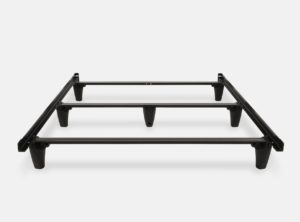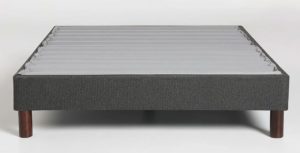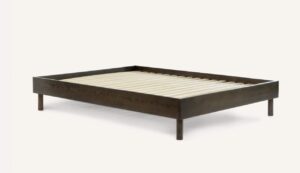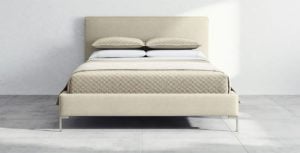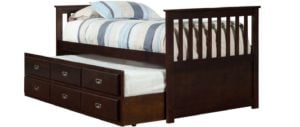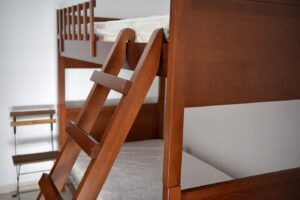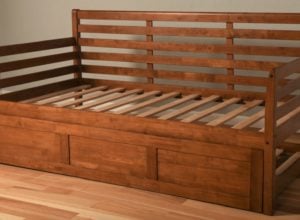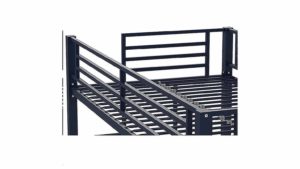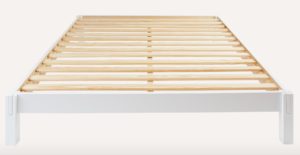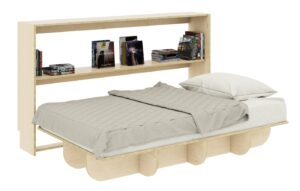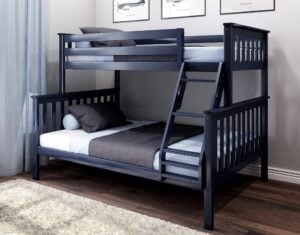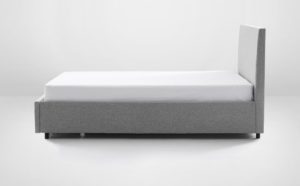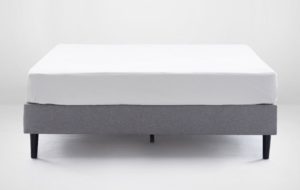How to Fix a Squeaky Bed
Most of us need a calm and quiet environment in order to get restful sleep. But sometimes, unwanted noises can keep us tossing and turning. In this case, a squeaky bed is the worst case scenario: Noises from the bed keep us from getting deep sleep, while tossing and turning only aggravates the problem. But what causes a bed to squeak, and how can you fix it?
How to Fix a Squeaky Bed
Fixing a squeaky bed starts with identifying where the noises are coming from, then seeking to address the problem using a do-it-yourself solution. Here’s a step-by-step guide on how to stop a bed from squeaking.
1. Identify the Source
First, you will need to figure out where the noises are coming from. There are three main possible sources for the noises you are hearing: the mattress itself, the box spring, or the bed frame/foundation.
All-foam mattresses will not cause squeaking, so if you have one, it’s safe to assume the noise is coming from the foundation. Innerspring and hybrid mattresses are more prone to noisiness, due to their metal springs. If you have an innerspring or hybrid bed, simply take the mattress off the bed frame and place it on the floor. Lay on it, and move around to test for sounds. If the mattress is making noise, then the issue lies in the metal springs of your mattress.
If it’s your mattress itself making noise, you will likely need to replace it. You may be able to check with the manufacturer for warranty coverage, but it’s unlikely that this issue will be covered by most warranties.
If it’s a box spring that is making noise, it’s likely coming from the metal coils. In this situation, it’s best to simply buy a new box spring. You may also consider if the box spring is necessary at all, since many newer mattresses don’t require – and can even be damaged by – them.
If it’s the bed frame or foundation making the noise, then there are many DIY techniques that you can try, as outlined below.
2. Tighten Joints
Most bed frames and foundations are held together by joints, usually connected with metal bolts or screws. These areas are a very common source of squeakiness, so this is a good place to start in trying to prevent excessive noise from your bed.
To start, simply tighten all the joints on your bed frame, using a wrench or screwdriver. You may also consider adding plastic washers to achieve a tighter fit, without the metal-on-metal connection that frequently causes squeaking.
Test for noises again. If the problem persists, move on to the next step.
3. Lubricate Joints
For metal bed frames, or any foundation with metal bolts or screws, applying lubrication can help. Products like WD-40 can be easily applied to joint areas, which often reduces noise.
If tightening and lubricating the bed’s joints does not fix the problem, the source of the noise is likely elsewhere.
4. Cushion the Frame
In many cases, noise can be caused by friction between the mattress and the bed frame/foundation. If this is the case, adding a layer of cushioning in between the frame and mattress (or the frame and the box spring) can help.
To do this, you’ll want to gather some relatively thin fabric materials, such as old socks, T-shirts, felt, or kitchen towels. Next, line the foundation or bed frame with the fabric, and place the mattress back on top. This should reduce friction and creakiness.
Following these steps, you should be able to identify the source of the noise and hopefully fix the problem. If the noise persists, here are a few other things to try:
- Place furniture pads to the legs of the bed frame, to reduce noise between the frame and the floor.
- Reduce wobbliness by ensuring your bed is even with the floor. If necessary, add extra padding underneath specific legs to even things out.
- If the bed frame has wheels, use caster cups to reduce movement and noise. Alternatively, simply remove the wheels and use furniture pads.
- Identify areas where there is wood-on-wood contact which may be causing noise. Gently apply a thin layer of beeswax (or candle wax) to the affected area to reduce friction.
What Causes a Bed to Squeak?
Squeaking or other unwanted noises can come from the mattress itself, from the box spring, from the frame, or from several sources at once. It’s generally best to test each component separately to determine the cause of the issue.
Innerspring and hybrid mattress models often squeak more as they get older. The noise comes from the metal coils used in these models, which can rub together more and more as the coils wear out. All-foam and all-latex mattresses, on the other hand, will not squeak, as they have no metal components.
Box springs will squeak for the same reason as innerspring mattresses: They utilize hundreds of metal coils, which can rub together more as they wear out. Both mattresses and box springs that are squeaking will generally need to be replaced.
In the case of bed frames and foundations, the source of excessive noise is generally due to friction between components. The box spring’s wooden edges may rub against the foundation frame. Or, the joints connecting the frame components together may be improperly tightened, causing excessive friction and noise.
Another less-common possibility is that squeaking can be caused by friction between the bed and the floor, or surrounding walls. In this case, the issue is usually due to an uneven foundation (such as a wobbly leg), or a lack of padding in between the bed and the floor.

Still have questions? Ask our community!
Join our Sleep Care Community — a trusted hub of sleep health professionals, product specialists, and people just like you. Whether you need expert sleep advice for your insomnia or you’re searching for the perfect mattress, we’ve got you covered. Get personalized guidance from the experts who know sleep best.

